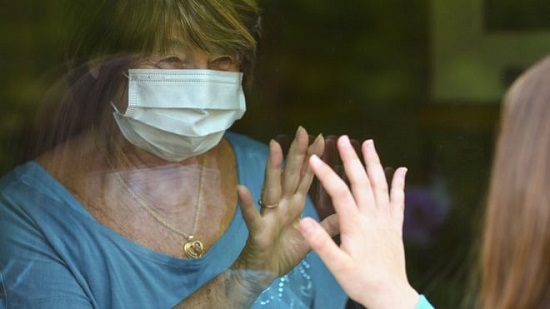The UK could see about 120,000 new coronavirus deaths in a second wave of infections this winter, scientists say.
Asked to model a "reasonable" worst-case scenario, they suggest a range between 24,500 and 251,000 of virus-related deaths in hospitals alone, peaking in January and February.
To date, there have been 44,830 official deaths in the UK, but this has slowed with 1,100 in July.
The estimate does not take into account any lockdowns, treatments or vaccines.
And the scientists say: "The risk... could be reduced if we take action immediately".
The report, requested by the UK s chief scientific adviser, Sir Patrick Vallance, stresses there is still a high degree of uncertainty over how the coronavirus pandemic will play out this winter.
But research suggests the virus can survive longer in colder conditions and is more likely to spread when people spend more time indoors.
And experts are concerned the NHS will be under extreme pressure, not just from a resurgence of coronavirus but also from seasonal flu and a backlog of regular, non-coronavirus workload.
How close are we to a vaccine?
What progress are we making on treatments?
Can you catch coronavirus twice?
Could there be a second wave?
The health service is already severely disrupted in the aftermath of the first pandemic wave, with a waiting list that could stand at 10 million by the end of this year, the report says.
Prof Stephen Holgate, a respiratory specialist from University Hospital Southampton NHS Trust, who chaired the report, said: "This is not a prediction - but it is a possibility.
"The modelling suggests that deaths could be higher with a new wave of Covid-19 this winter.
"But the risk of this happening could be reduced if we take action immediately."
With relatively low numbers of coronavirus cases at the moment, "this is a critical window of opportunity to help us prepare for the worst that winter can throw at us", he added.
Less pessimistic winter scenarios are also possible, with coronavirus deaths in the thousands.
The report makes it clear there is a high degree of uncertainty in the projected death figures.
It is not a prediction of what will happen, rather what might.
Researchers can model likely scenarios. But simulations rest on assumptions that do not always play out in real life.
Change any of the parameters slightly, and you get very different projections.
The overall message, however, is clear - prepare for the worst and hope for the best.
Currently, coronavirus deaths and cases in the UK are down, which gives the nation a chance to reflect and plan for a second wave.
Keeping infection rates low as Britain emerges from lockdown will be critical in controlling the disease.
The virus has not gone away. And we do not have a vaccine for it yet.
But there are things we can all do, including isolating and getting tested if we develop symptoms.
Co-author Prof Dame Anne Johnson, from the Academy of Medical Sciences, said: "Faced with these potential challenges, and after an already tough year, it would be easy to feel hopeless and powerless.
"But this report shows that we can act now to change things for the better."
It recommends:
increasing capacity of the test-and-trace programme, to cope with the overlapping symptoms of coronavirus, flu and other winter infections
getting more people vaccinated against flu
ensuring hospitals and care homes have enough personal protective equipment (PPE)
creating coronavirus-free zones in hospitals and care homes, to halt infections
Health Secretary Matt Hancock said planning was already under way for dealing with the expected surge in demand on the NHS this winter.
The government had procured enough flu vaccine to roll out the "biggest flu vaccine programme in history" and was working on setting up a coronavirus vaccination programme should a successful vaccine be found, he added.
A government statement said: "We remain vigilant and the government will ensure the necessary resources are in place to avoid a second peak that would overwhelm our NHS."



